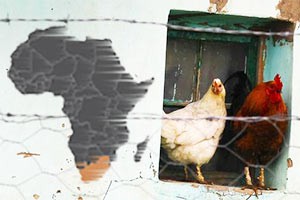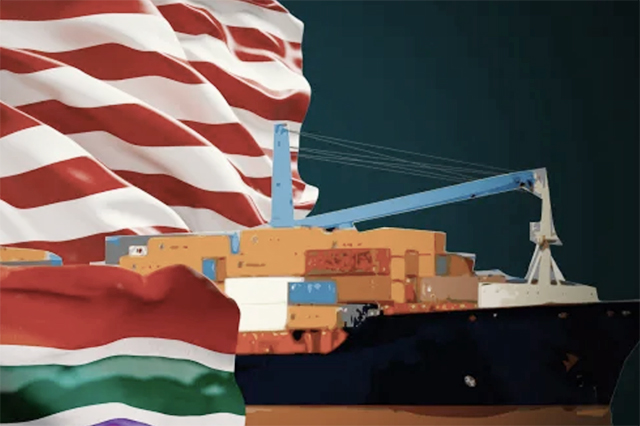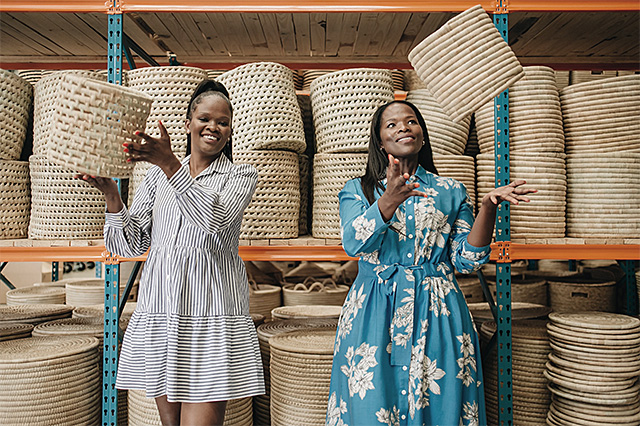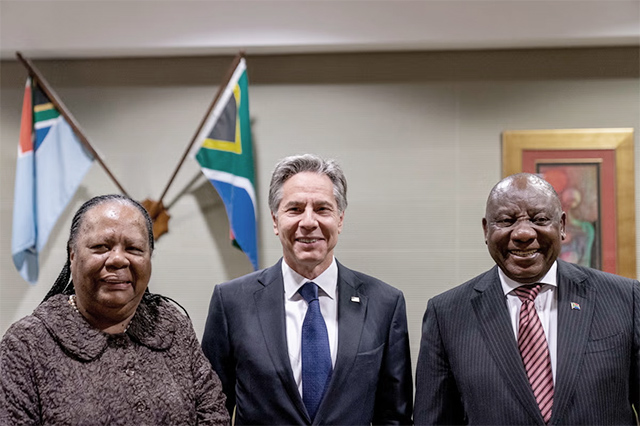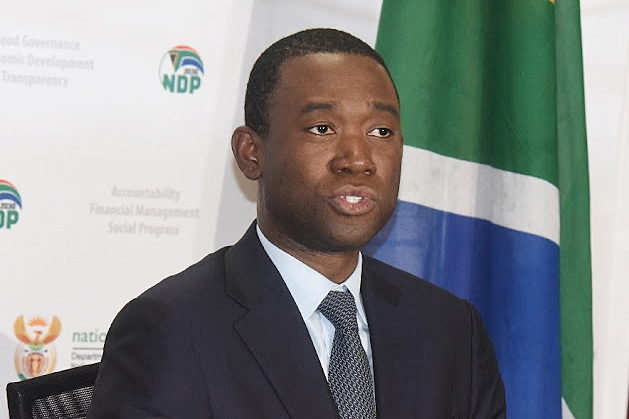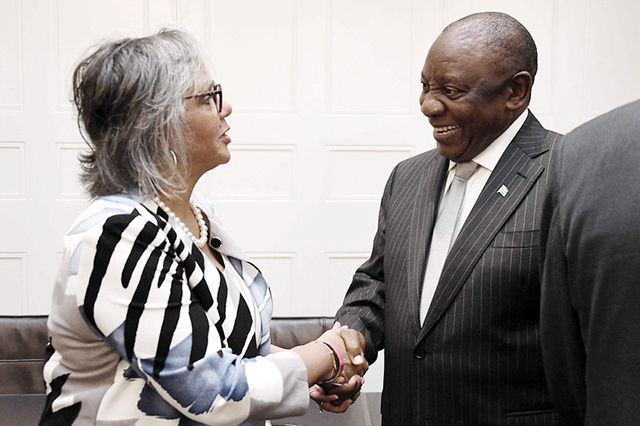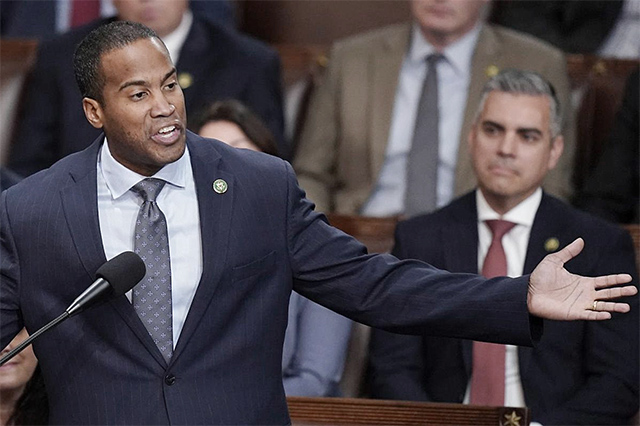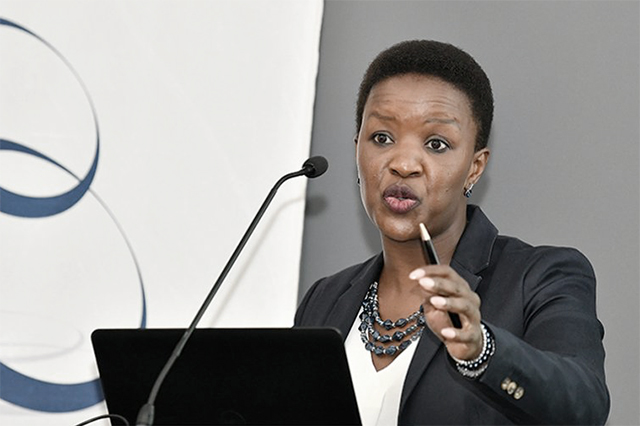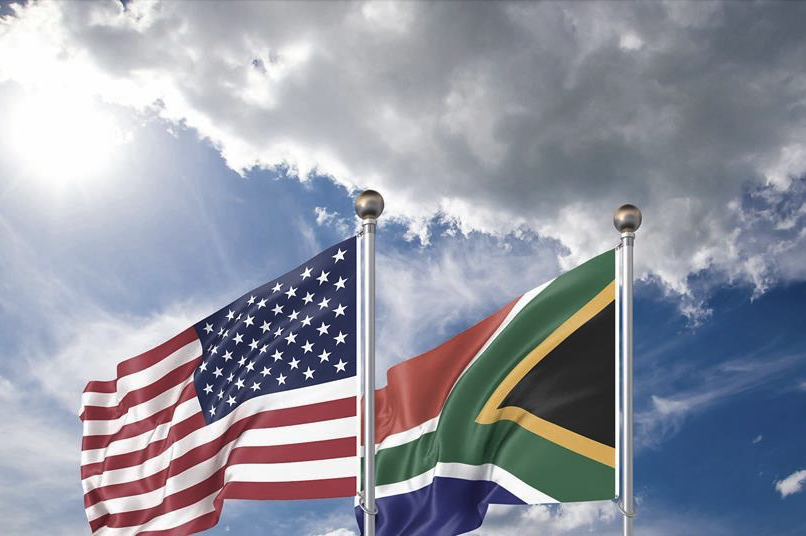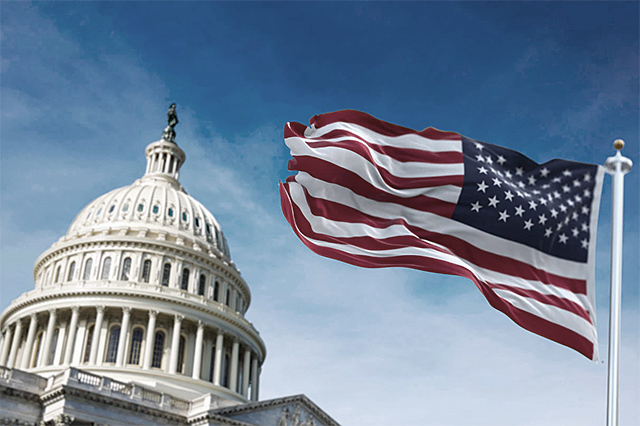South Africa: How we got to the AGOA cliff edge
Foot-dragging by South African government officials and complex technical disputes combined with powerful US industry lobbies pushing their advantage to the limit have brought SA to the edge of a trade cliff.
The country stands to lose the duty-free access its agricultural products enjoy in the US market under the African Growth and Opportunity Act (Agoa) in less than 60 days if the outstanding issues preventing the import of US poultry, pork and beef are not resolved.
Last Thursday, US President Barack Obama wrote to the US Congress, giving his decision on the out-of-cycle review that had been undertaken to determine SA’s eligibility under Agoa. His decision took the form of an advance notice of his intention to suspend duty-free access to all SA’s Agoa-eligible agricultural goods from January 4 if there is no settlement.
The issues at stake are enormous. The export value of SA’s agricultural products to the US that benefit from Agoa — particularly citrus fruit, wine and macadamia nuts — is about $137m, or R1.9bn, a year. This makes it difficult to understand how SA could have got it so wrong. Or did we?
The US government claims that it has been trying to overcome the barriers to its meat exports to SA for decades without success. The renewal of Agoa brought issues to a head and gave the US the opportunity to drive its case hard. About a year ago, when Agoa’s extension appeared on the radar screens of both the US and South African governments, threats were made by US congressmen and industry associations that if SA did not lift the anti-dumping duties on its poultry exports, in particular, it risked losing its eligibility under the act. Stiff anti-dumping duties have been imposed on US poultry imports for about 15 years.
Trade and Industry Minister Rob Davies left it to the South African Poultry Association (Sapa) to conclude a deal with its US counterpart. The talks were not easy, with the Americans initially insisting on an annual quota of 120,000 tonnes of bone-in chicken portions free of dumping duty compared with the South African offer of 25,000 tonnes. This yawning gap was closed only after much to-ing and fro-ing, and many threats and warnings.
An in-principle deal was concluded at the 11th hour at a meeting in Paris in June. The US agreed to a quota of 65,000 tonnes. Sapa estimated that it would slice off about R1bn in revenue from domestic poultry producers.
"This was an in-principle agreement that had to be reduced to writing — an agreement that has still not been finalised — with both the US industry and the South African industry claiming a different interpretation of their Paris agreement," Sapa executive director Kevin Lovell noted at the weekend. He said Sapa was ready to sign a draft agreement, but was still waiting for the US industry to act.
He insisted, contrary to US claims, that the in-principle agreement did not deal with sanitary and phyto-sanitary (SPS) issues that were a government-to-government matter.
This in-principle agreement saved SA’s bacon in so far as its eligibility for Agoa benefits was concerned, but the Americans were taking no chances. There were still SPS issues to thrash out before the South Africans would allow US poultry to enter the domestic market. One of these was how to ensure the safety of South African birds if exports from disease-free US states were allowed when other states were hit by highly pathogenic forms of avian flu. Beef and pork producers were also squealing for the market access denied them for decades on what they argued were "unwarranted" SPS grounds. These mounting political pressures culminated in the inclusion of a new provision when the law extending Agoa for a further 10 years was enacted by the US Congress at the end of June.
This required that an out-of-cycle review of SA’s trade and investment policies be undertaken within 30 days to determine whether they acted as a barrier to US interests. The previous act allowed for out-of-cycle reviews, but did not target a specific country. The review was launched on July 21 and gave SA more time to resolve the disputes. It also gave the US administration and the powerful agricultural lobby a new lever to extract concessions.
Again, SA was required to jump through hoops. It committed itself to meeting benchmarks on poultry, pork and beef to demonstrate its compliance with Agoa’s eligibility requirements. However, it failed to meet the October 15 benchmark on poultry that included the finalisation of an avian flu trade protocol as well as a US export certificate to enable poultry shipments to occur by the end of the year. This was also the deadline for US trade representative Michael Froman to submit the report on the out-of-cycle review to Obama.
Lobbying by the US meat and poultry industries intensified as the negotiations on the SPS issues seemed to stall. The South African government — led by Trade and Industry Minister Rob Davies and Agriculture Minister Senzeni Zokwana — did not buckle in the face of this avalanche of pressure. Instead, they left it to the state’s veterinarians to negotiate an agreement.
The clock was ticking. The vets took a long time. Slow-footedness is a common complaint that foreign governments lay at the door of South African government officials. A lack of capacity no doubt contributes to this problem.
Other pressing issues had to be put on one side by the vets so they could deal with the Agoa-related matters. The US’s vets were also tardy in supplying the required information in an acceptable form.
But it is also true that the vets who have to take responsibility for SA’s animal health were not prepared to compromise their professional standards in the face of US bullying. Mr Davies has said repeatedly during numerous briefings with the media that he was not competent to intervene in technical issues related to animal health and had to allow the vets to do their job.
He pointed out that the president of the OIE (the French world organisation for animal health) was none other than the department’s chief director of animal health, Dr Mike Modisane, so there was no lack of competence. Would the vets’ task have been facilitated had there been more guidance and direction on sensitive issues by Davies and Zokwana, who as political leaders are required to decide on how rigidly rules and regulations should be applied when there is scope for some flexibility? This is what the Democratic Alliance (DA) suggests in blaming Davies for a "mess-up" and his "incompetent handling" of the entire Agoa process — a charge Davies rejects strongly.
Lovell says it is not appropriate for the politicians to intervene in these matters.
"As with all technical experts … it is expected that they will exercise their responsibilities according to the standards set by their professional body. Unfettered technical advice is what they are supposed to give and Minister Zokwana and Minister Davies have said at various times that the experts must do their jobs."
The DA also fails to acknowledge the way the US has used Agoa as a tool to extract trade concessions from SA.
In his letter to Congress, Obama makes it abundantly clear that he chose to give advance notice of a pending suspension rather than terminating SA’s Agoa benefits altogether as this was a way of "promoting compliance" and "would better promote continuing efforts between the US and SA to resolve these outstanding issues".


